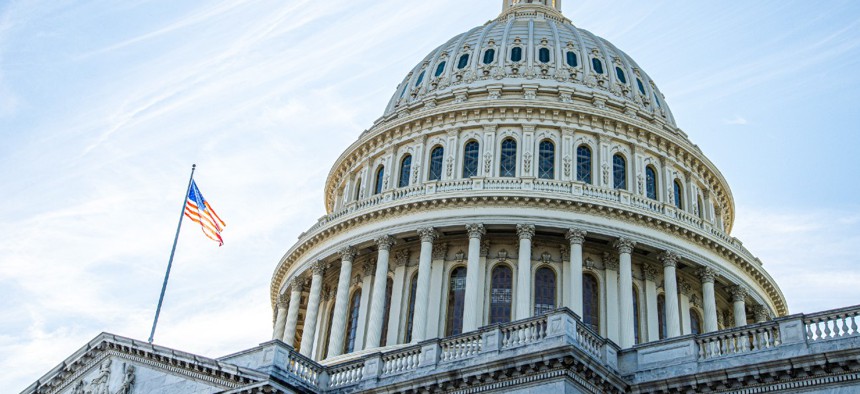
Elisank79 / iStock.com
House Passes Shutdown and Default-Averting Package That Now Faces Uphill Battle in Senate
The measure's passage appears unlikely to do much to avoid a shutdown at the end of the month.
The House on Tuesday passed a measure to push the shutdown deadline to Dec. 3, though the threat of agencies shuttering at the end of the month still looms large as the bill faces a difficult path in the Senate.
The stopgap continuing resolution would fund agencies at their current levels for about nine weeks past the current Sept. 30 expiration, while also providing emergency funds for disaster relief and Afghan resettlement. Senate Republicans have said they are on board with that part of the package, but have voiced opposition to the provision that would suspend the nation’s debt limit until December 2022. Nearly every Republican in the chamber has vowed to oppose any measure that raises or suspends the debt ceiling, leaving low odds that the 50 Senate Democrats will find enough bipartisan support to get the 60 votes needed to pass the measure.
Republicans have called on Democrats to use a process known as reconciliation to pass a separate measure to raise the borrowing cap, as it would allow them to do so without any support from the minority party. Republicans have said they should not have to vote to finance spending surges they do not want. Democrats have countered that both parties should vote to avoid both a shutdown and default on U.S. debt, as many Republicans supported and President Trump signed into law a COVID-19 relief package that contributed to the current debt level.
If the bill fails in the Senate, Democrats would have to go back to the drawing board to avoid a shutdown come Oct. 1. If they are able to pass a CR, lawmakers have expressed optimism that they would be able to reach a compromise setting line-by-line appropriations for the rest of fiscal 2022 by Dec. 3. The House has approved many of the requisite spending bills for fiscal 2022, which included large spending increases for nearly all federal agencies and did not gain Republican support. The Senate, which will have to win bipartisan backing to advance its appropriations measures, has not yet voted on any of its bills.
The current bill would provide $28.6 billion for natural disaster response and $6.3 billion for resettlement of Afghan evacuees. Democrats hit a snag on Tuesday as progressive members briefly threatened to vote against the CR due to funding it included for Israel’s missile-defense system, but that spending was ultimately stripped from the package.
Senate Minority Leader Mitch McConnell reiterated the Republican position on Tuesday, saying his members would support a CR but not a debt ceiling suspension. He expressed confidence the U.S. government would avoid a default that could have catastrophic consequences for the economy, but said Democrats would ensure that on their own.







